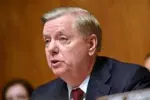
Tucker Carlson interviews “Pharma” author Gerald Posner. (Photo credit: YouTube/Top In Pak)
Author Gerald Posner said that a consulting firm advised Purdue Pharma to give opioid distributors incentives for the number of people who either became addicted to opioids or died as a result of an overdose, on “Tucker Carlson Tonight” Monday.
“It’s one of the most outrageous and cold calculus pieces of business, you know, from the people who brought you Enron, the best and brightest at McKinsey advising Purdue in the heart of the opioid crisis is somewhat not surprising but at the same time, still very disturbing,” stated Posner, a former nominee for the history Pulitzer Prize, about the controversy.
“McKinsey, as you suggest, it really is the incubator of our ruling class, Chelsea Clinton’s former employer,” Carlson replied to the “Pharma: Greed, Lies, and the Poisoning of America” author. “Did anyone at McKinsey say ‘hold on a second, this is morally grotesque and I’m resigning?'”
MRC TV video player
A full transcript of the interview follows:
Tucker Carlson: A story that didn’t get enough attention, Purdue Pharma, the pharma company that made opioids, pleaded guilty last week to criminal charges for its role in causing the opioid epidemic, which has caused, as you know, hundreds of thousands of deaths of Americans in this country. We now have internal documents that show how Purdue’s consultants at McKinsey & Company, you won’t be surprised to learn, saw those deaths as nothing more than the cost of doing business, transaction costs. Gerald Posner has been on top of this longer than almost anybody in media. He’s the author of the book “Pharma.” He covered McKinsey’s work with Purdue Pharma long before anyone else and he joins us tonight to explain what these documents show. Joe, thanks so much for coming on.
Gerald Posner: Yeah, thanks Tucker.
Carlson: This is really a stunning story. What have we learned?
Posner: Yeah you know, there are very few things after spending five years on looking into the American drug industry, there are very few things that shock me anymore. This was a shocking development. I had to read that document twice to make sure that I really understood it. And what it really is is that in 2017, McKinsey, who had been advising Purdue already at that point for eight years on all different aspects of their business, that it was tough to sell oxycontin because of the fact that it had become America’s biggest prescription drug abuse crisis and lethal crisis ever; they had to come up with something different than before. And what they came up with was an idea of, “why don’t we encourage the insurance companies like Anthem, CVS, United Health, and others who are paying for oxycontin under insurance plans, give them some incentive to make sure they don’t knock oxy off the insurance plans. And so, we’ll give them bonuses based upon the number of people who either get addicted to oxy or die of oxycontin overdoses between $6,000 and $14,000 a person,” so they came up with this fancy 42-page presentation PowerPoint that they gave to the Purdue executives who loved it, and said “look, it’s going to cost you anywhere between $3 million and $35 million a year to some of the big insurance companies, but it will be some incentive so that you make sure they keep you on their formulary and you can continue to get paid out.” It’s one of the most outrageous and cold calculus pieces of business, you know, from the people who brought you Enron, the best and brightest at McKinsey advising Purdue in the heart of the opioid crisis is somewhat not surprising but at the same time, still very disturbing.
Carlson: So McKinsey, as you suggest, it really is the incubator of our ruling class, Chelsea Clinton’s former employer. Did anyone at McKinsey say “hold on a second, this is morally grotesque and I’m resigning?”
Posner: No, as a matter of fact, Tucker, not only didn’t they do that, listen, in 2007, Purdue pleaded guilty to misbranding oxycontin. It paid a $600 million fine. Who did they go to the next year to make sure that there weren’t any more regulations from the FDA? They went to McKinsey then. Nobody at McKinsey raised an eyebrow about it. As a matter of fact, in 2012, it was McKinsey who was able to get Purdue to go forward to the FDA and get a new and improved tamper resistant formula that blocked out all generic competition. Then the next year in 2013, McKinsey again presented these great plans to Purdue called “Turbocharge the Sales” and helped them through it. And what happens in 2018 when the attorney general of Massachusetts files a lawsuit against Purdue? For the first time, you start to see emails in McKinsey saying, “oh by the way, maybe we should get rid of all our emails and documents about our help with Purdue.” So that’s where they went. They went from helping them make money, millions of dollars, to suddenly thinking about “maybe we should cover it up.”
Carlson: It’s unbelievable. Gerald Posner, thank you.
Posner: Thank you.
Alexander Watson is a CNSNews intern and Christendom College graduate.







